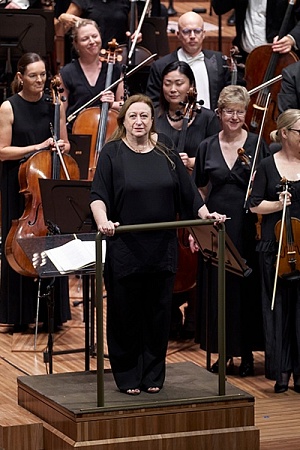Das Rheingold
Finally liberated from the solitude of our lounge rooms and Netflix subscriptions, sitting in Melbourne’s Regent Theatre shoulder-to-shoulder on Wednesday night felt like a forbidden treat. The palpable exuberance of being back on the town, though, was tempered by a profound appreciation of our delicately privileged position. As the first major opera performance in Melbourne after a protracted Covid shutdown of the live performing arts, Melbourne Opera’s Das Rheingold marks an important moment in the cultural life of the city – the beginning both of Richard Wagner’s Ring Cycle and of a new chapter in the living operatic history of Melbourne.
Wagner’s complex works are rich in symbolism and metaphor (both musical and dramatic). The specific symbolism of Rheingold at this moment possesses a certain relevance, if not gravitas. Against the backdrop of a disease spread from animals to humans, and with fires raging in Western Australia, an ancient story about the pillaging of natural resources in pursuit of wealth and power is not without its modern-day parallels.
Continue reading for only $10 per month. Subscribe and gain full access to Australian Book Review. Already a subscriber? Sign in. If you need assistance, feel free to contact us.















Leave a comment
If you are an ABR subscriber, you will need to sign in to post a comment.
If you have forgotten your sign in details, or if you receive an error message when trying to submit your comment, please email your comment (and the name of the article to which it relates) to ABR Comments. We will review your comment and, subject to approval, we will post it under your name.
Please note that all comments must be approved by ABR and comply with our Terms & Conditions.